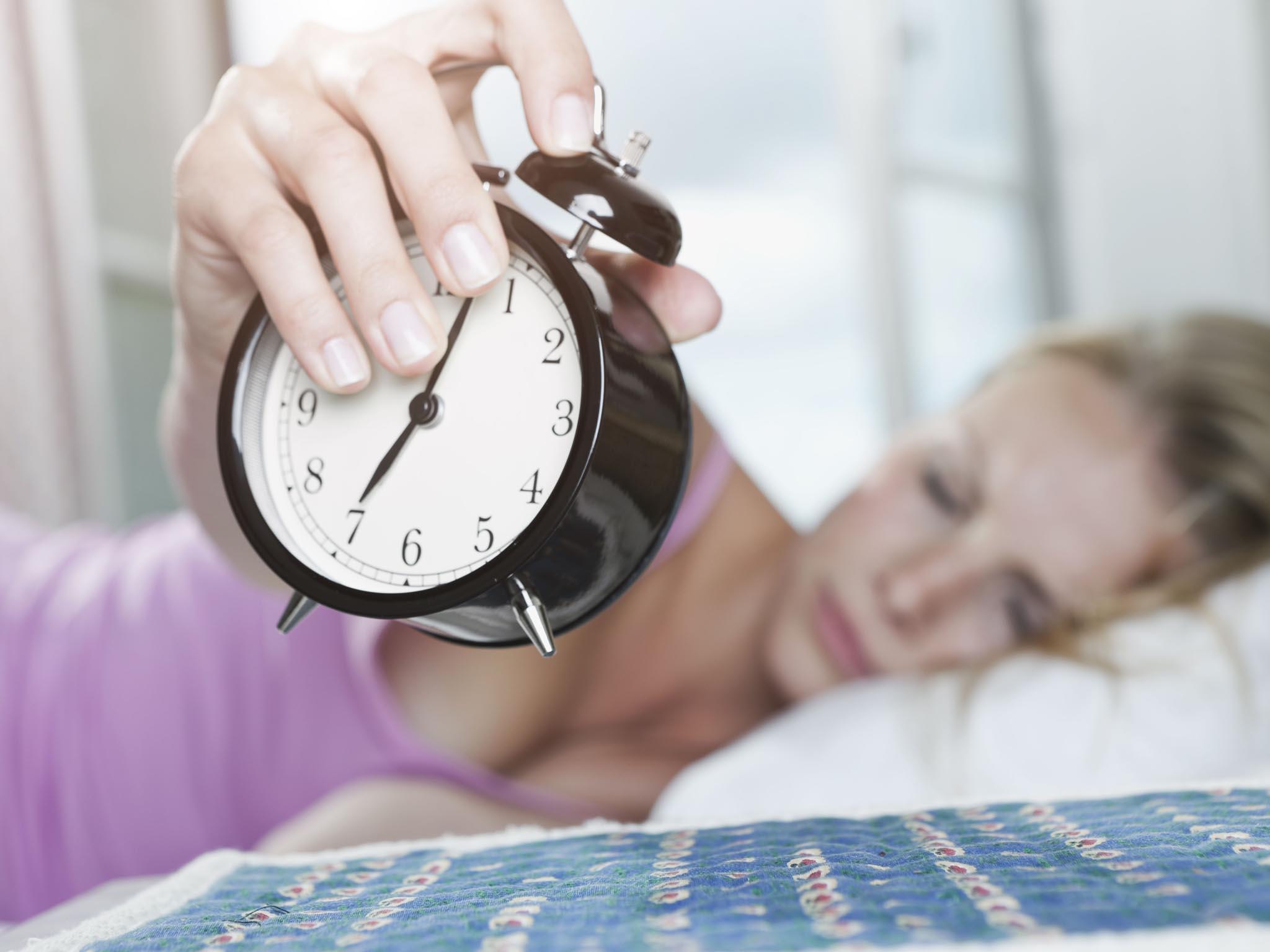People who hit the snooze button are more intelligent, more creative and happier

Your support helps us to tell the story
From reproductive rights to climate change to Big Tech, The Independent is on the ground when the story is developing. Whether it's investigating the financials of Elon Musk's pro-Trump PAC or producing our latest documentary, 'The A Word', which shines a light on the American women fighting for reproductive rights, we know how important it is to parse out the facts from the messaging.
At such a critical moment in US history, we need reporters on the ground. Your donation allows us to keep sending journalists to speak to both sides of the story.
The Independent is trusted by Americans across the entire political spectrum. And unlike many other quality news outlets, we choose not to lock Americans out of our reporting and analysis with paywalls. We believe quality journalism should be available to everyone, paid for by those who can afford it.
Your support makes all the difference.The snooze button does tend to get a bad rap. People who use it are often branded as lazy and undisciplined and many people believe that getting those additional ten minutes every morning can seriously wreck your circadian rhythm.
And who hasn’t almost overslept at least once because the siren call of snooze was just a little too hard to ignore?
If you are one of those people, science has some good news for you: You may well be more intelligent, more creative and even happier than those who manage to jump out of bed at the first ring.
Night Owls might be smarter...
The British study "Why night owls are more intelligent“ links snoozing to creativity, intelligence and an independent spirit. The authors Satoshi Kanazawa and Kaja Perina argue that we are far better adapted to living (and sleeping) like our ancestors did — which means getting to bed early and getting up early in the morning — and that being particularly adaptable to modern life is a sign of outstanding intelligence.
In plain terms this means: It takes a smart person to deal with the snooze button because it is a very recent invention that evolution itself has done nothing to prepare us for.
This second correlation might be a bit more intuitive: If we learn to listen to our own body’s needs and not to the hard and fast rules of our clocks, we are more likely to pursue our own passions and find our own solutions to problems. This makes us more creative and independent.
... and also happier
This seems to be corroborated by a study of the University of Southhampton that compared the socioeconomic circumstances of 1229 men and women with their sleep patterns: People the studies calls „owls“ (because they go to bed after 11 pm and get up after 8 am) had more income and a more comfortable lifestyle in general.
Unfortunately, this does not mean we should spend all our time in bed. While night owls are happier and smarter, there are still significant risk factors associated with staying in bed too long. People who spend 12 or more hours in bed have been shown to have a significantly higher risk of untimely death.
So what does this mean?
Hit that snooze button and don’t worry about it! Just make sure to go to bed a little later. That way you also have enough time to complete all your amazingly creative projects.
• This stunning 'hotel room' in the Swiss Alps has no walls
• The 10 most expensive cities to live in around the world in 2017
• 6 proven ways to get over a breakup
Read the original article on Business Insider UK. © 2016. Follow Business Insider UK on Twitter.
Join our commenting forum
Join thought-provoking conversations, follow other Independent readers and see their replies
Comments